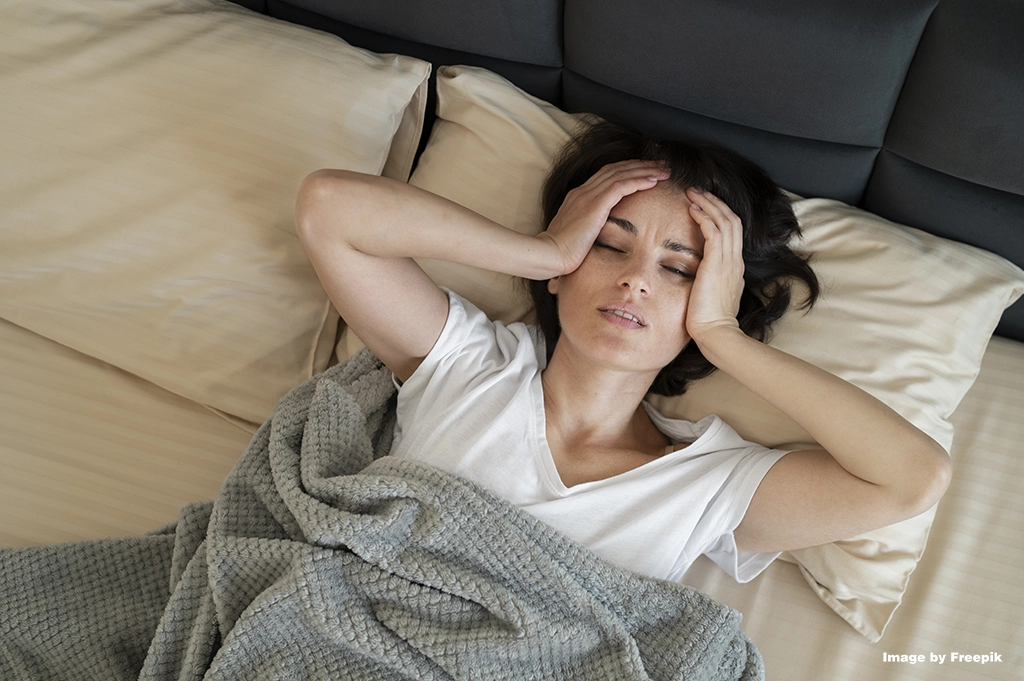In the realm of well-being, there exists a profound and intricate connection between mental health, sleep, and insomnia. It’s imperative that we delve into this vital relationship to provide you with an informative and friendly perspective. This comprehensive blog will serve as a beacon of knowledge, shedding light on how these elements intertwine and impact your emotional well-being. So, let’s embark on this illuminating journey together.
Table of Contents
The Foundation: Mental Health
To comprehend the profound connection between mental health, sleep, and insomnia, we must first establish a solid foundation by examining the concept of mental health. Mental health, often overlooked but equally essential as physical health, encompasses our emotional, psychological, and social well-being. It affects how we think, feel, and act in various aspects of life.
The Impact of Mental Health
Your mental health sets the stage for your overall well-being. It influences how you perceive and react to the world around you. When your mental health is in harmony, you’re more likely to experience a positive outlook on life, maintain healthy relationships, and navigate challenges with resilience.
Sleep: The Restorative Pillar
Imagine sleep as the cornerstone of a grand structure, where each night’s rest is a brick in the construction of your well-being. Sleep isn’t merely a state of rest; it’s a complex and dynamic process that plays a pivotal role in sustaining mental health. During slumber, your brain is actively processing emotions, consolidating memories, and restoring itself to the challenges of the day ahead.

The Sleep Cycle Unveiled
Unveiling the secrets of the sleep cycle is essential in understanding its impact on mental health. As you descend into the stages of deep sleep, your brain engages in emotional processing and memory consolidation. This process equips you to face emotional challenges with resilience and clarity.
The Importance of Quality Sleep
Quality sleep is more than just the number of hours you spend in bed. It’s about the depth and restorative nature of your slumber. Poor sleep quality can lead to disruptions in emotional processing, making it difficult to maintain a positive outlook and manage stress effectively.

Insomnia: The Disruptor of Harmony
In our narrative, insomnia emerges as the antagonist, disrupting the harmonious relationship between mental health and sleep. Insomnia, characterized by difficulty falling asleep or staying asleep, can have severe consequences for your emotional well-being. The persistent struggle to sleep can lead to heightened stress, anxiety, and a sense of emotional imbalance.
The Vicious Cycle
Insomnia often triggers a vicious cycle where sleep deprivation fuels emotional distress and, in turn, exacerbates insomnia. Breaking this cycle becomes paramount to restoring equilibrium to your emotional well-being.

Understanding Insomnia
To address insomnia effectively, it’s crucial to understand its underlying causes. Insomnia can be a result of various factors, including:
- Stress and Anxiety: High levels of stress and anxiety can make it challenging to relax and fall asleep.
- Depression: Individuals with depression may experience disrupted sleep patterns.
- Medical Conditions: Certain medical conditions, such as chronic pain or respiratory disorders, can contribute to insomnia.
- Lifestyle Factors: Poor sleep hygiene, irregular sleep schedules, and excessive caffeine intake can also play a role.
The Vital Connection: Emotional Well-being
Now that we’ve dissected the elements, it’s time to explore their interconnectedness and their profound impact on your emotional well-being.
The Domino Effect
Mental health influences the quality of your sleep. When you’re grappling with stress, anxiety, or depression, achieving a restful night’s sleep can be elusive. Conversely, poor sleep can exacerbate these mental health challenges, setting off a domino effect of emotional turmoil.

Strategies for a Healthier Mind and Sound Sleep
As a medical practitioner and seasoned blogger, I’m committed to equipping you with practical strategies to nurture both mental health and sleep. Here are some actionable tips:
1. Prioritize Mental Health
- Cultivate mindfulness through meditation or deep breathing exercises.
- Seek professional support when needed, as therapy can be a valuable resource.
2. Embrace Sleep Hygiene
- Establish a consistent sleep schedule.
- Create a comfortable sleep environment, free from distractions.
- Limit screen time before bedtime to promote better sleep quality.
3. Tackle Insomnia Head-On
- Cognitive-behavioral therapy for insomnia (CBT-I) is a highly effective treatment option.
- Explore relaxation techniques, such as progressive muscle relaxation or aromatherapy.
Frequently Asked Questions (FAQs)
Q1: How does mental health affect sleep quality?
A1: Mental health has a significant impact on sleep quality. Conditions like stress, anxiety, and depression can disrupt sleep patterns, making it difficult to fall asleep or stay asleep. Conversely, poor sleep can exacerbate these mental health challenges, creating a cycle of emotional distress.

Q2: What are some practical tips for improving sleep hygiene?
A2: Improving sleep hygiene is essential for better sleep quality. Here are a few tips:
- Maintain a consistent sleep schedule.
- Create a comfortable sleep environment by keeping your bedroom dark and quiet.
- Limit screen time before bedtime to reduce exposure to blue light.
- Avoid caffeine and heavy meals close to bedtime.
- Engage in relaxation techniques such as meditation or deep breathing exercises.
Q3: Can insomnia be treated effectively?
A3: Yes, insomnia can be treated effectively. Cognitive-behavioral therapy for insomnia (CBT-I) is a highly recommended treatment option. It focuses on changing behaviors and thought patterns that contribute to insomnia. Additionally, relaxation techniques and lifestyle adjustments can also help improve sleep quality.
Q4: Is seeking professional help for mental health and sleep issues advisable?
A4: Absolutely. Seeking professional help for mental health and sleep issues is a sign of strength and a crucial step toward improvement. Therapists, counselors, and sleep specialists are trained to provide guidance and treatments tailored to your specific needs.
Q5: What role does a healthy lifestyle play in promoting emotional well-being and better sleep?
A5: A healthy lifestyle plays a pivotal role in both emotional well-being and sleep quality. Regular exercise, a balanced diet, and stress management techniques can positively impact mental health. These practices, coupled with good sleep hygiene, contribute to overall well-being and improved sleep.
Wrapping Up
As we conclude this comprehensive exploration of the connection between mental health, sleep, and insomnia, we hope that these frequently asked questions have provided you with valuable insights. Remember that you’re not alone on your journey to better mental health and restorative sleep. Seeking professional guidance and adopting healthy lifestyle practices can pave the way to a fulfilling and balanced life.







